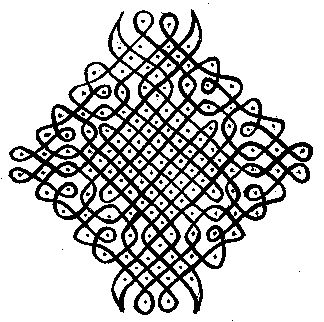One of the ways that I relate to people is by playing games of strategy. From Chess to Mancala to Go.
One game that I play with many is based off of a science fiction novel called the Glass Bead Game. The game itself is called the Glass Bead Game.
At the center of the monastic order lies the (fictitious) Glass Bead Game, whose exact nature remains elusive. The precise rules of the game are only alluded to, and are so sophisticated that they are not easy to imagine. Suffice it to say that playing the Game well requires years of hard study of music, mathematics, and cultural history. Essentially the Game is an abstract synthesis of all arts and scholarship. It proceeds by players making deep connections between seemingly unrelated topics. For example, a Bach concerto may be related to a mathematical formula. One description says:
“Theoretically,” writes the Narrator Archivist, “this instrument is capable of producing in the Game the entire intellectual content of the universe. The manuals, pedal, and stops are now fixed. Changes in their number and order and attempts at perfecting them, are actually no longer feasible except in theory.” And with this statement, he reveals the limitations of the game: its elitism, its hubris, its stagnation, and its sterility. In its infancy, the Game was played with delicate glass beads, which have since been discarded as too . . . real? They connected the Game with the spiritual beads played by religious believers worldwide, as the robes, and secret language, and ceremonial trappings of the game form a mock religious experience in the time of the Narrator Archivist. Without them, the game flies into the ether without a tether to reality. In our world, prayer beads and the repetition of simple phrases serve as keys to transcendence. In Castalia, they are discarded and the key is lost. The Narrator Archivist makes no reference to the ecstatic states that might be achieved by Glass Bead Game players. The games as he describes them in Knecht’s time (the twenty-second century) and his own (the twenty-fourth century) apparently fall short of what seems the obvious goal.
The Game derives its name from the fact that it was originally played with tokens, perhaps analogous to those of an abacus or the game Go. At the time that the novel takes place, such props had become obsolete and the Game is played only with abstract, spoken formulas. At other times it is played with movement and gesture. The audience's appreciation of a good game draws on its appreciation of both music and mathematical elegance.
The game I play with many is called Hip Bone. The board can be varied

From this Water Board design.

To a complex kolam design
What is so incredible is that it just isn't a game of strategy. You can create 'beautiful music' when you Build with a like mind with this game. You can actually create a piece of art. If you want to get down with the God (or someone else) and rock Hip Bone you can check out the game here



 IF YOU LIKE WHAT I WRITE BUY ME A CUP OF SHOU WU CHIH
IF YOU LIKE WHAT I WRITE BUY ME A CUP OF SHOU WU CHIH 





















No comments:
Post a Comment